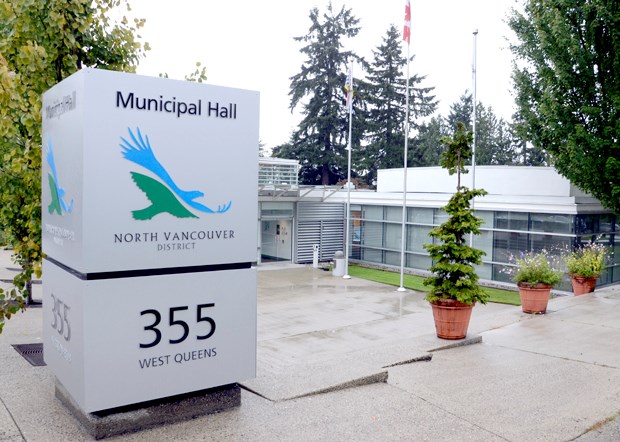District of North Vancouver taxpayers’ dollars could be staying a lot closer to home in the future if the municipality follows through on a “buy local” proposal.
District council voted unanimously Monday night to explore how it could support local business, “while still complying with a local government’s obligations for open, transparent and non-discriminatory procurement practices under provincial, federal and international trade agreements.”
The motion came from Coun. Jim Hanson who said he was inspired after learning each of the 52,000 new garbage bins delivered to the district this year emblazoned with a “Made in the USA” label.
“Quite frankly, I view it as unpatriotic for the district to be making allocations of money of this size on American merchandise at a time when America is not buying our lumber, imposing punitive trade circumstances on airplanes and airplane parts and otherwise just taking a very aggressive position towards us,” he said, noting many products and services can be sourced locally or, at least, in Canada. “I think that’s where district residents would want those goods and services to be provisioned. Beyond that, in the Lower Mainland. Beyond that, in British Columbia and beyond that, in Canada.”
In his written report to council, Hanson suggested allowing a 10 per cent premium on prices for local vendors, or awarding contracts to locals when bids from firms are otherwise equal.
Municipalities are subject to a number of trade agreements within Canada that kick in for contracts of $75,000 or more for goods and services and $200,000 for construction, according to Hanson’s report. The North American Free Trade Agreement does not apply.
Couns. Roger Bassam and Robin Hicks both showed deep qualms. Bassam was attending the meeting via phone while on a business trip to the U.S. where he was looking to sell software to the U.S. government.
“I’m not a big supporter of artificial trade barriers and non-tariff barriers and what Coun. Hanson is proposing. I would go further to suggest that rather than putting in a policy that says we should pay 10 per cent more, we should be following the policy we have, which is prudent procurement. We are looking for the best value for the money for our taxpayers,” he said. “”We do (buy local) whenever it makes sense but not if it’s going to cost us an excessive amount of money and not if it’s going to give us a second-class product and not if it’s going to give us inferior service.”
Coun. Hicks, who spent his career working in municipal finance departments, also advised against modelling district policy on populist measures favoured by certain nation states.
“I think introspective and insular policies, which are now being espoused both in the states and in the U.K., are highly controversial and not to be followed,” he said.
But Hanson was able to win over council’s support to, at the very least, ask district staff to report back with more details on how a buy-local policy could work within the district’s existing procurement policy.
“I know from my experience and my education in local economic development and sustainable community development, that every dollar spent in the local economy has a multiplier effect,” said Coun. Mathew Bond, giving his support to the motion. “When you spend money in the local economy, it stays in the local economy and has spinoff effects.”
The staff report on buying local is expected in the new year.



